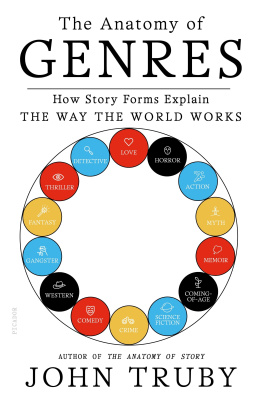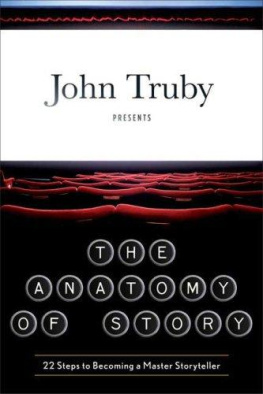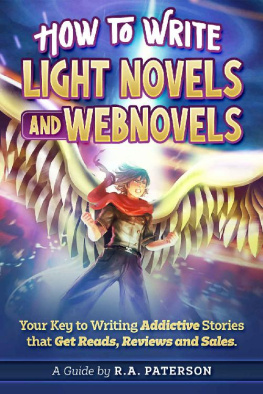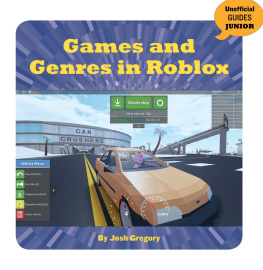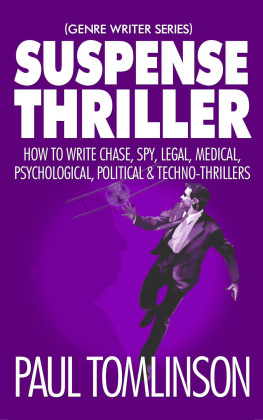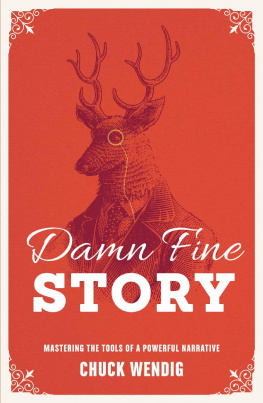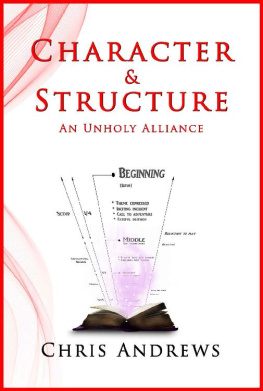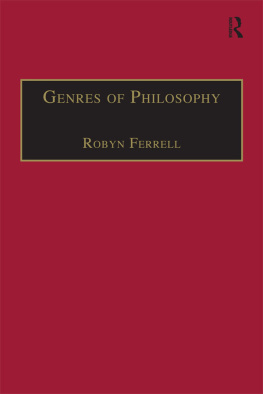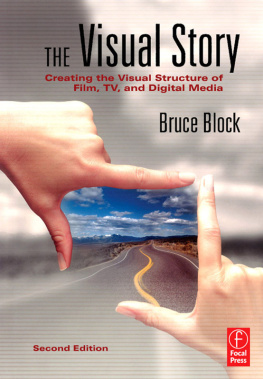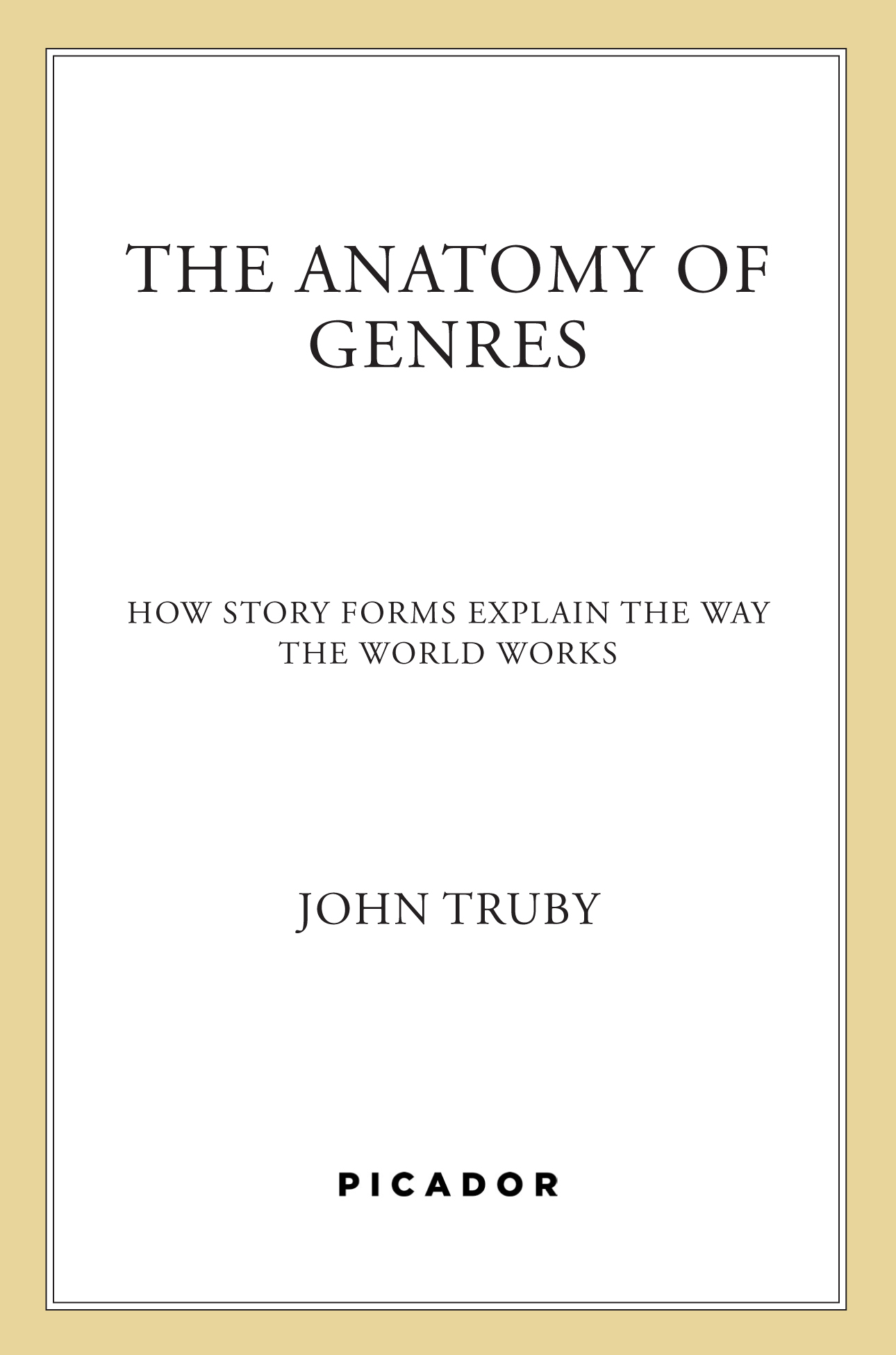Contents
Guide
Pagebreaks of the print version

The author and publisher have provided this e-book to you for your personal use only. You may not make this e-book publicly available in any way. Copyright infringement is against the law. If you believe the copy of this e-book you are reading infringes on the authors copyright, please notify the publisher at: us.macmillanusa.com/piracy.
For Leslie
Everything you need to know about life can be found in stories. Why? Stories define life. And the philosophies developed over the course of human history inform and respond to both. As a result, understanding the anatomy of a story is about much more than writing. Its also about knowing how to live.
In these pages you will find in-depth discussions of the fourteen major story genres that give shape to human existence. You will learn how to write themand how to live themin a way that transcends the ordinary.
Genres are types of stories: Detective, Love, Action, Fantasy, or Science Fiction, for example. When we understand how genres work, and what they tell us, we can apply their lessons in writing as well as in life. For example, did you know:
- Action is about being successful, not morally right.
- Myth represents a journey to understand oneself and gain immortality.
- Memoir is not about the past; its about creating your future.
- Fantasy is about finding the magic in the world and in ourselves to turn life into art.
- Detective fiction shows us how to think successfully by comparing different stories to learn what is true.
- Love stories reveal that happiness comes from mastering the moral act of loving another person.
As we struggle to make sense of our place in the world, we think we have a clear grasp of the problems. But the problems we face today are based on how the world appears to work. Plato referred to these appearances as shadows. When we dont understand how the world truly isits deep structurehow can we fit into it?
The solution is to use stories as a model.
Story is innate to human beings. Its how we learn. Its how we process the world and how we find our place in it. If you understand story, youve got a framework for life.
Story has always been fundamental to passing information from one generation to another. Whether its oral storytelling around the fire or parables in the Bible, story is how we record and communicate life lessons.
The earliest hunter-gatherer societies understood the tremendous importance of story in their everyday lives. But as societies developed agriculture and technology advanced, a different mindset began to take over. Human lives became dominated by the work required to eat, and later to turn a profit. Once people started living in large enough groups, religions formed to give people ethical guidelines for how to live together. Stories were considered a means to that end.
This move from the primacy of story to an art practiced only by the lucky few is expressed in this famous comment by John Adams:
I must study politics and war, that my sons may have liberty to study mathematics and philosophy. My sons ought to study mathematics and philosophy, geography, natural history and naval architecture, navigation, commerce, and agriculture, in order to give their children a right to study painting, poetry, music, architecture, statuary, tapestry, and porcelain.
This quote describes an order of operations that has been a fundamental tenet of Western societies for centuries, if not millennia. It shows up in the work of Aristotle, arguably one of the greatest philosophers of all time. I began my first book, The Anatomy of Story, with Aristotle, because he was the key figure who established our modern division of knowledge. He first wrote his Metaphysics and then, among other works, his Ethics and later his Poetics.
Since metaphysics is the study of first principles, this order makes perfect sense. Ethics is about how to live a moral life. Poetics is the theory and practice of storytelling. For Aristotle, that included exploring the main genres of his time: epic poetry, tragedy, and comedy.
A version of this hierarchy of knowledge is what were taught to this day. Were told that math and science are essential for our future success, while painting, music, and theater are extracurricular activities. Stories are diversions, something to take our minds off our troubles after a long day. They are something a few creative people write, and even fewer get paid for, while the rest of us enjoy stories in our spare time.
Yet theres a different way of looking at things. Stories dont just serve as forms of entertainment; they encapsulate everything from the basic organizing principles of the world to how we should live our lives in it. In this sense, everything is about poetics.
KEY POINT: Seeing the world through the prism of story marks a revolutionary change in how we look at the world, and its the reverse of what weve been taught.
All the things we thought were bigger than story, like morality, culture, society, religion, sports, and war, are simply different kinds of stories. We humans are essentially storytelling animals.
Consider this quote from Richard Flanagans novel First Person (2018). Scam artist Ziggy Heidl explains the reason for his success:
I made it up. Every day, just like you. Like a writer What do you think a businessman is? A politician? Theyre sorcerersthey make things up. Stories are all that we have to hold us together. Religion, science, moneytheyre all just stories.
Story is a philosophy of life expressed through characters, plot, and emotion. It shows life as art. Thats why stories are the universal building blocks of religion and always have been. Story transcends specific religions, each of which is a collection of stories about how to live an ethical life. We find these stories in the Old Testament (Judaism) and New Testament (Christianity), the Koran (Islam), the Upanishads (Hinduism), the I Ching (Confucianism), and many other texts. The universal religion of story is why the novels, television series, films, plays, and video games we encounter today define the culture of the secular world.
Storytelling influences every aspect of a persons life. Consider how business runs through advertising. Everything we buy and sell is part of a story. Parenting is full of storytelling. We tell stories to our kids at bedtime. We tell stories to our teenagers to prevent them from doing drugs. And we need to be better storytellers than the others who try to influence them.
At work, we need to tell a compelling story to drum up business. A good story can determine whether we can pay the rent.
Politics uses story to exercise power. Adlai Stevenson once observed, In classical times when Cicero had finished speaking, the people said, How well he spokebut when Demosthenes had finished speaking, the people said, Let us march. Turning words into action is the central distinction in communication.
KEY POINT: Stories are maps of humanity .
Why have some ancient myths endured for centuries? Theyre not just entertainment; theyre instructional. First, they explain the physical world. For example, the story of Persephone and why we have winter. Do we still think the seasons work that way? No, but it helps us to make peace with colder days and longer nights.


